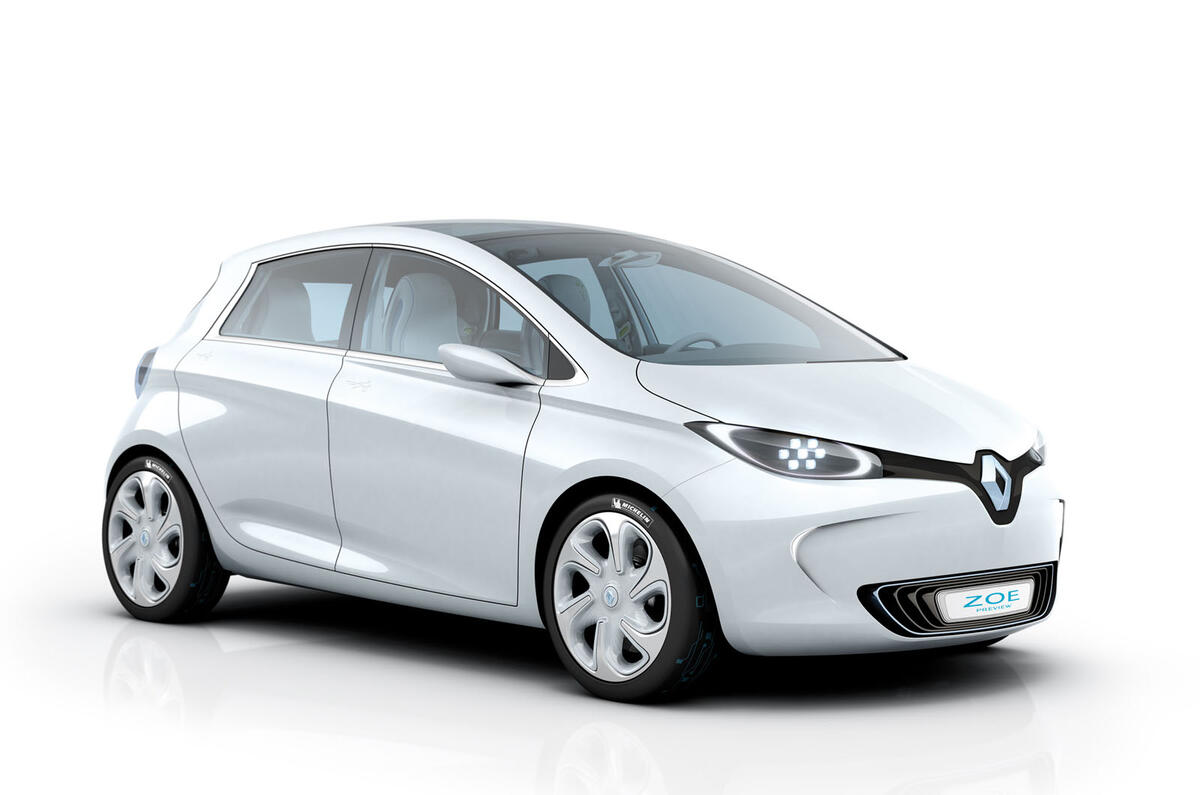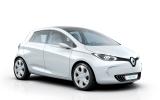Renault’s plan to release an electric performance hatchback remains on course, and it could produce fruit as early as 2013.
The ‘electric Gordini’, uncovered by Autocar in April 2009, will be a higher-powered version of the Zoe supermini, seen in concept form at Paris.
See official pics of the Renault Zoe concept
Using Nissan’s higher-output electric powertrain, as used in the Leaf, it could get as much as 134bhp and more than 200lb ft of torque.
“We have a higher-powered version of the car [Zoe] in mind for slightly later in its life cycle,” said the deputy director of Renault’s EV programme, Matthieu Tenenbaum.
Read the full story of the new Renault Zoe
At its 2012 launch, the Zoe will be equipped with a 79bhp electric powertrain shared with the Kangoo ZE. Although the ‘hot’ EV will offer higher performance, it won’t suffer a lower officially rated range: “There would be little penalty in range when measured on the standard European driving cycle.”
Renault will spread out the launch of the standard and hot Zoe models, just as it might with hot and standard IC-engined models. “We considered offering two versions of the car from the beginning, but thought it would over-complicate the buying process for early adopters,” said Tenenbaum.
















Join the debate
Add your comment
Re: Renault plans electric hot hatch
Call me cynical but there seems to be something odd about many of the European EV and Hybrid new car annoucements. How can you go from 79 to 134 bhp electic engine and not affect "quoted " range. Of course the range is a function of how hard you drive ( 20 miles @100mph is not the same as 20 miles@30mph etc.) but I think some serious "gaming" of the EU CO2 test cycle is underway.
IIRC the EU cycle is 4 km urban and 7km extra urban. Any decent battery pack can get to 11km or 7 miles so it is quite possible to claim some supendously low CO2 result AND fit a high power IC engine as well as a large electic motor. I suspect that is exactly what BMW are doing with their recent hybrid supercar. The benefit for the mfrs is that theycan claim low CO2 whilst, in reality , still building high power IC cars, whch are of course the profitable ones.
Unfortunately the actual result for society will be cars that meet all the EU rules but still return a real world mpg/CO2 output no lower than today. I don't really blame BMW or Renault etc. but it will probably show once again how well intended but poorly thought through rules can be by - passed.